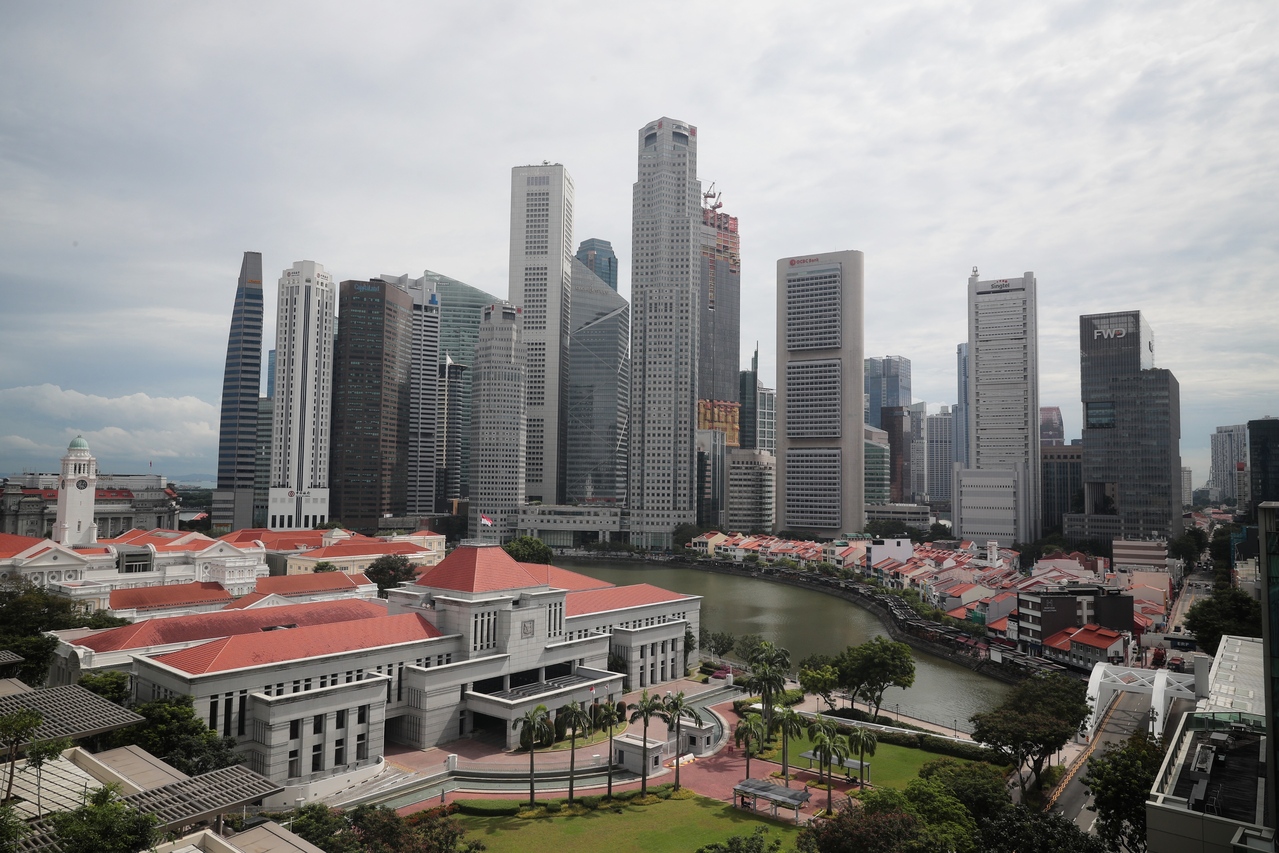Make-up pay scheme for political office-holders used once since system began: Teo Chee Hean
Sign up now: Get ST's newsletters delivered to your inbox

The make-up pay system was introduced in Parliament in 1989.
ST PHOTO: JASON QUAH
Follow topic:
SINGAPORE - A make-up pay scheme that eases the transition for private sector professionals taking up political office has been used once since it was put in place in 1989, said Senior Minister Teo Chee Hean in Parliament on Tuesday (July 6).
However, when a person is being considered by the People's Action Party for politics - and also potentially for political office - a sense of service is the most important prerequisite, he added.
Mr Teo said: "When we consider potential candidates to take up political office, the first quality that we look for is a sense of public service, those who have their heart in the right place, and want to contribute to the betterment of Singapore, and Singaporeans.
"This should always be the basic prerequisite for any political candidate."
He was responding to a question from Workers' Party MP He Ting Ru (Sengkang GRC), who asked how many times the make-up pay scheme has been used since 1989, when it was first introduced, who it was given to and for how long.
Mr Teo said the political office-holder was on the scheme for two years, but he did not say who it was.
He added that no one is on the scheme now.
The make-up pay system was introduced in 1989. The White Paper on Salaries for a Capable and Committed Government published in 2012 said at the time that it was not used even once.
The paper was the result of a review on the basis and level of political salaries by a committee appointed by Prime Minister Lee Hsien Loong on May 21, 2011.
Under the make-up pay system, the Prime Minister can offer a candidate for political office make-up pay for up to 90 per cent of the difference between the person's pay in political office and his average pay in the last three years prior to the appointment.
The committee behind the review had proposed in 2012 that this be allowed for up to one term in office, instead of two terms, in the White Paper, which was endorsed by Parliament.
After the maximum period of one term, the political office-holder will be paid according to his or her salary grade, the committee said in the White Paper.
It also said that the pay should be calculated based on the principal earned income, "consisting earnings from the person's primary source of employment and including monthly salary, bonuses, stock options, partnership income and commissions".
On Tuesday, Mr Teo said since 1989, several candidates have been brought into the Government without the use of the mechanism to make up their pay, and they have accepted a substantial income loss.
"As I said, we have individuals who are prepared to come in and give it up. And we have individuals who are prepared to come in and accept that they will take a lower salary," he added.
Ms He asked how many potential candidates had declined to run for election on the ruling PAP's ticket because they felt that the pay was not enough.
To this, Mr Teo said: "Pay is not usually one of the things that they will tell you upfront, but it surely is one of the considerations for a person who has got commitments and a young family, and a promising career ahead of him, which he is quite sure of.
"And to come in to take the vagaries of politics, and to give that up, is a big sacrifice. So we want to reduce that and help him in the transition."
Mr Teo also said that it is important to ensure the right mix of backgrounds, skills and organisational and leadership capabilities in the Cabinet, and to this end, there is a need to bring in ministers, ministers of state and parliamentary secretaries with private sector experience.
In the same vein, it is also important to bring in younger people whose careers are just taking off or who are approaching their peak earning years.
Some of these people may have made financial commitments, and the scheme will help ease the financial disruption they may face, he added.
But he said: "Not withstanding the make-up pay, such candidates know and accept that even if they eventually prove themselves in political office, they will not earn as much as if they had remained in their private sector careers."

